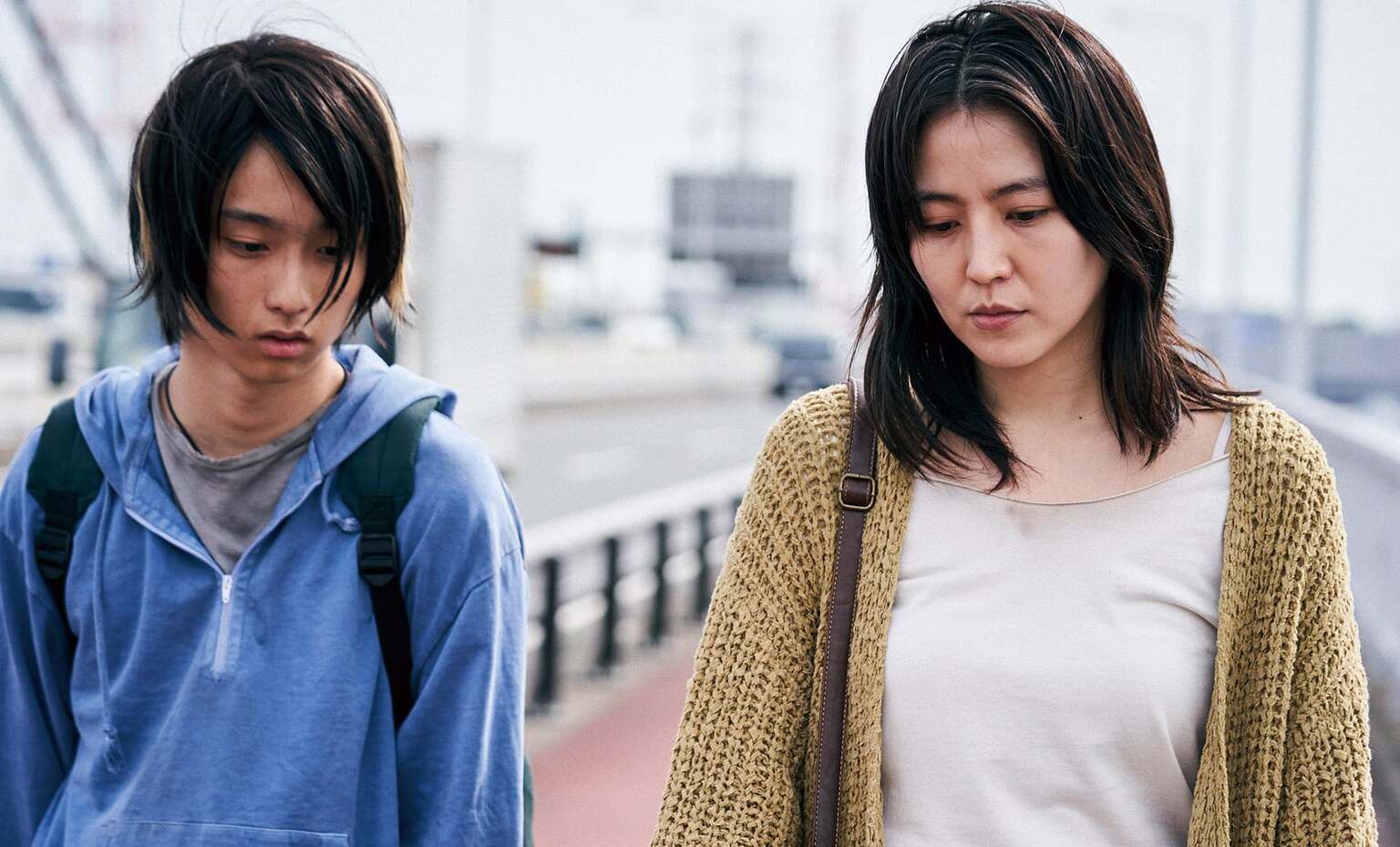The relationship between Shuhei (Sho Gunji and Daiken Okudaira) and his mother Akiko Misumi (Masami Nagasawa) in Tatsushi Ohmori’s drama film ‘Mother’ is not based on any socially acceptable dynamic between a parent and a child. It’s not even symbiotic, although they are co-dependent. The only phrase that fits this context is parasitic. Since he was a child, she has asserted her authority as a mother over his conscience and used him to coax money out of people, including the boy’s father, her own parents, and sister. As a young adult, Shuhei as an individual doesn’t exist any longer. He has become a mere extension of his mother’s will. Her hold on him is so all-consuming and toxic that it leads to him committing a heinous crime without much of a protest in the final part of the film. SPOILERS AHEAD.
Mother Plot Synopsis
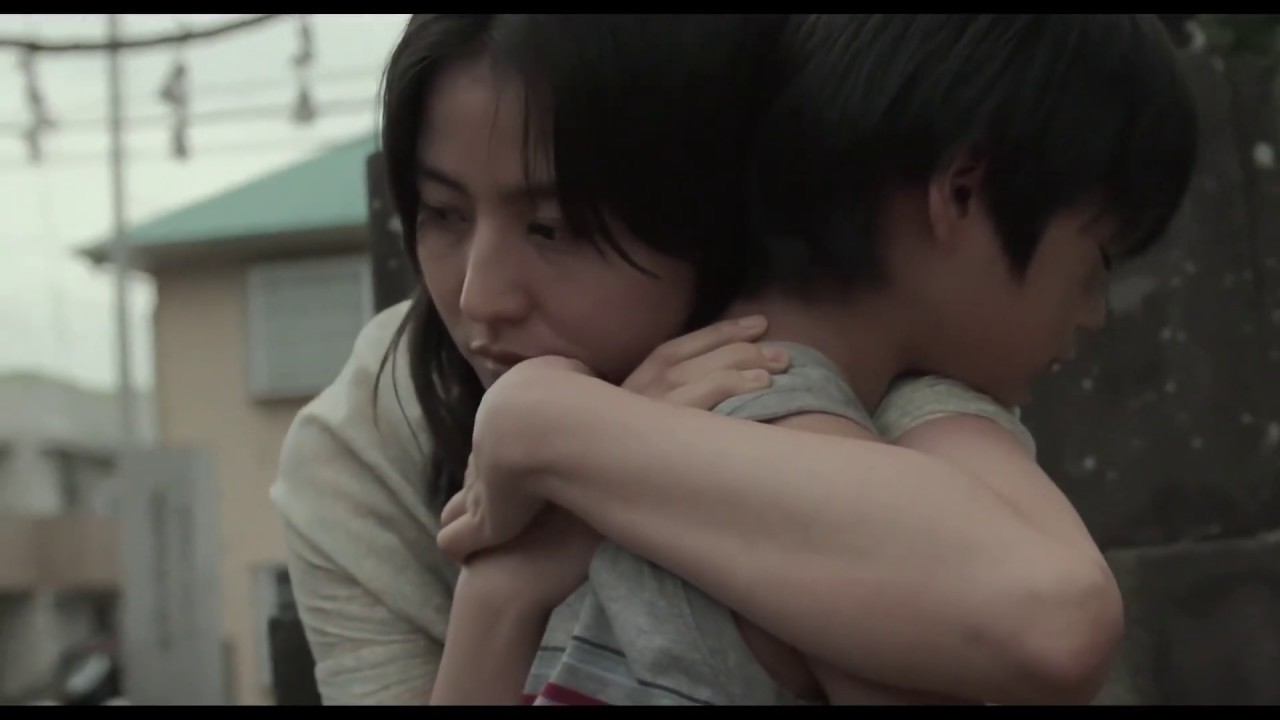 In the opening few scenes, Ohmori, who also co-wrote the screenplay, sets up his two main characters and then lets them respond to the plot of the film. Akiko, on her bike, paddling ahead, with a wispy and small Shuhei running after her on foot serves as a neat, little metaphor for their relationship. Her visit to her parents’ house to ask them for money quickly becomes tense and volatile because her mother (Hana Kino) and financially-stable sister (Kaho Tsuchimura) have become exhausted with how she leads her life. They know that if they give her any money, she will just go and waste it on pachinko. Even within her family, she has come to be regarded as a nuisance and been disowned in all but name (that will come later).
In the opening few scenes, Ohmori, who also co-wrote the screenplay, sets up his two main characters and then lets them respond to the plot of the film. Akiko, on her bike, paddling ahead, with a wispy and small Shuhei running after her on foot serves as a neat, little metaphor for their relationship. Her visit to her parents’ house to ask them for money quickly becomes tense and volatile because her mother (Hana Kino) and financially-stable sister (Kaho Tsuchimura) have become exhausted with how she leads her life. They know that if they give her any money, she will just go and waste it on pachinko. Even within her family, she has come to be regarded as a nuisance and been disowned in all but name (that will come later).
She meets Ryo (Sadao Abe), a club host who has as much penchant for self-destruction as her, and they quickly begin a relationship. He is abusive, both towards her and Shuhei, and forces them into a life of petty crime and constant moving from which they will never escape. As Shuhei is unable to sever his ties with his mother, Akiko is unable to take a firm prerogative and end the relationship. It’s always him who walks away, forced to do so by a litany of things, from debt collectors to Akiko’s pregnancy with his child. And every time, the small family, which now includes Akiko’s daughter Fuyuka (Halo Asada), attains a semblance of stability, he returns and causes disruption. This goes on throughout the film until the family has nowhere else to go. They eventually return where it had begun, in front of her parents’ house, and Akiko convinces Shuhei to kill them.
Mother Ending
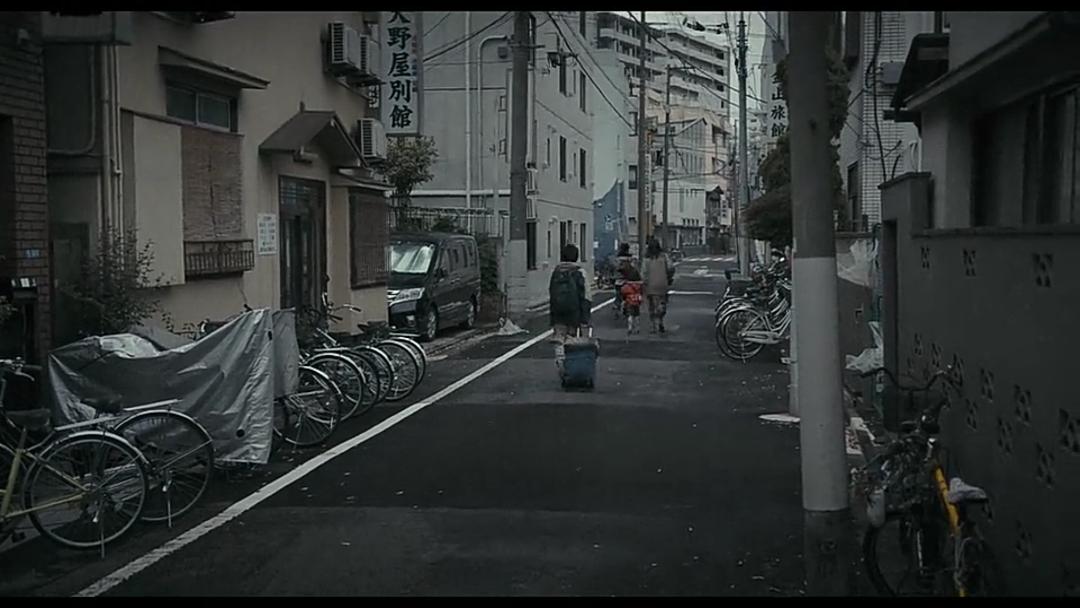 It is always easy to place all the blames for our unfulfilled dreams and the onus of our shortcomings on other people. That way, our miserable lives become someone else’s responsibility. Shuhei, who has legitimate reasons to do this, never once even considers it. Perhaps he should have, seeing how everything turns out for him. Akiko, on the other hand, blames everybody but herself for her circumstances. The biggest culprits, she decides, are her parents, who turned her away right after she found out that she was pregnant with her second child. She willfully ignores the sequence of events that preceded it.
It is always easy to place all the blames for our unfulfilled dreams and the onus of our shortcomings on other people. That way, our miserable lives become someone else’s responsibility. Shuhei, who has legitimate reasons to do this, never once even considers it. Perhaps he should have, seeing how everything turns out for him. Akiko, on the other hand, blames everybody but herself for her circumstances. The biggest culprits, she decides, are her parents, who turned her away right after she found out that she was pregnant with her second child. She willfully ignores the sequence of events that preceded it.
A Malevolent Parental Bond
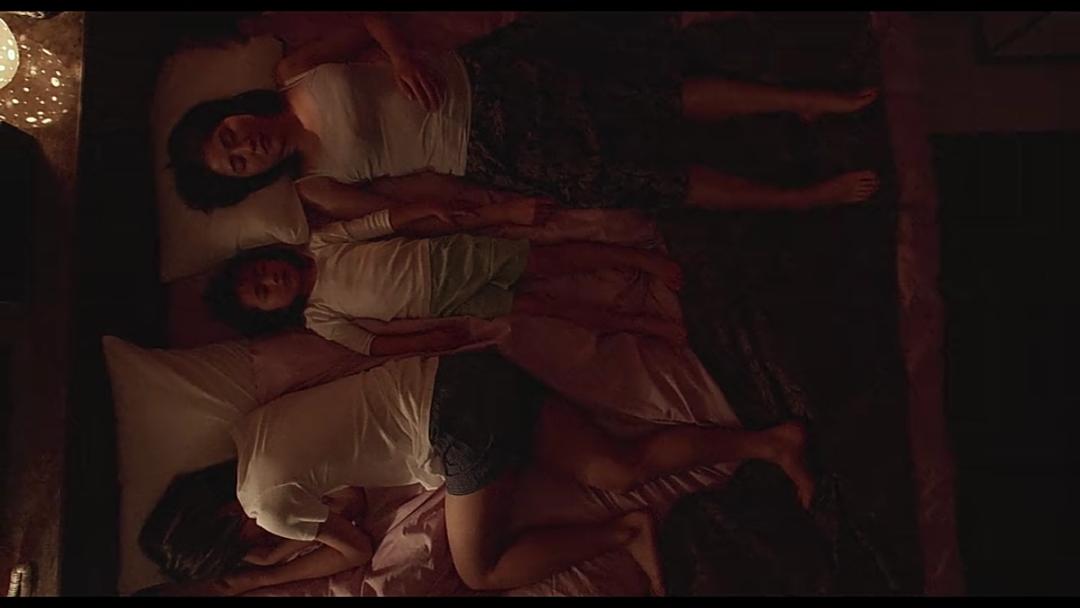 Shuhei doesn’t demonstrate an earnest desire to escape his mother’s clutches even once in the film. When his father asks him to come live with him, he declines, stating in a halting but poised manner that he has to be with his mother. After Ryo leaves them the first time, and they are eventually forced to live on the streets, the child services find them, giving them a place to live. It’s virtually a pigeon hole, but at least now they have a roof over their head. Young and kind case worker Aya (Kaho) even gets Shuhei enrolled in a free school. An orphan who has endured her fair share of struggles, she tells him her own story, hoping that it will inspire him to think about his future. This is the first and only time that Shuhei dares to dream. But the moment Ryo comes back into their lives, it gets crushed.
Shuhei doesn’t demonstrate an earnest desire to escape his mother’s clutches even once in the film. When his father asks him to come live with him, he declines, stating in a halting but poised manner that he has to be with his mother. After Ryo leaves them the first time, and they are eventually forced to live on the streets, the child services find them, giving them a place to live. It’s virtually a pigeon hole, but at least now they have a roof over their head. Young and kind case worker Aya (Kaho) even gets Shuhei enrolled in a free school. An orphan who has endured her fair share of struggles, she tells him her own story, hoping that it will inspire him to think about his future. This is the first and only time that Shuhei dares to dream. But the moment Ryo comes back into their lives, it gets crushed.
With the debt collectors hot on his trail, Ryo decides to leave the town once more but takes Akiko and the children with him this time. Shuhei tries to protest and says that he wants to stay there and continue studying. Akiko, cruel and forceful as ever, dismisses his wishes. She mocks him and brutally strips away the last remnant of his developing self-confidence. The spark of a teenage rebellion gets easily snuffed out, and what remains is a husk of a young boy who can never escape his mother.
Akiko turns Shuhei into a potent weapon and then points him toward the people who she thinks are the root cause of all her misery, her parents. When he shows up at their doorstep, they welcome him in. Years have passed, and time has a way of healing even the most painful wounds. They even tell him that they want to meet their granddaughter. It is then that Shuhei strikes and kills them both. There are obviously some moments of hesitation before he commits the act, but the outcome was always going to be this. His mother has given him explicit instruction, and he has no choice whatsoever but to see it through.
The Family Breaks
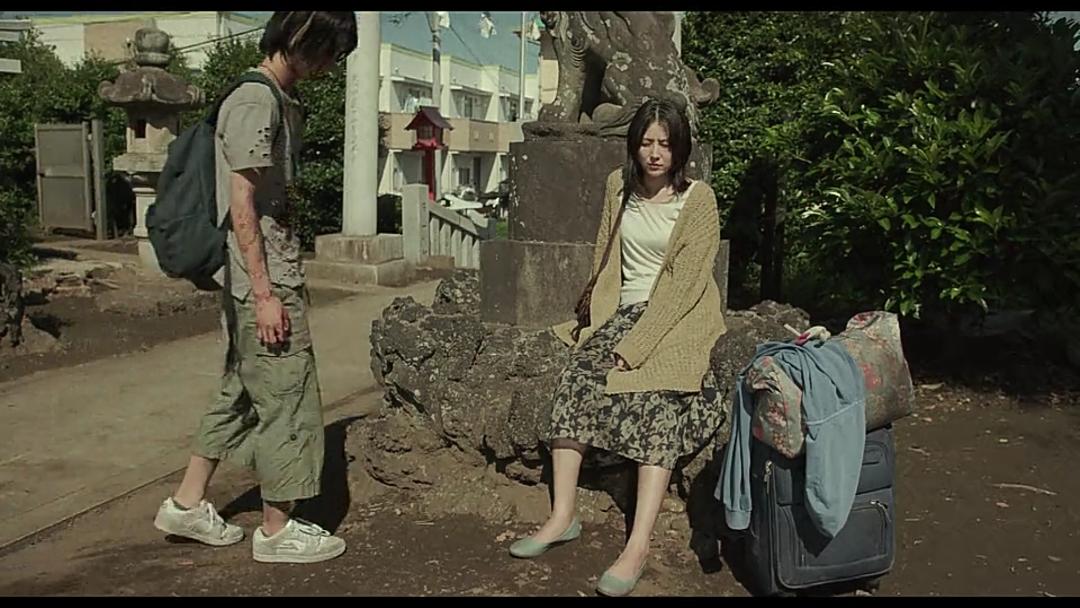 The film is reportedly based on an incident that happened in 2014. Both Shuhei and Akiko are ultimately arrested. The authorities try to make Akiko confess that it was she who planned the murders of her parents. Selfish and unrepentant, she asks if they have any proof to support these allegations, knowing they don’t. she also knows that Shuhei will never betray her. The pervasive control that she has over him ensures that. And she is right. Despite the efforts of the authorities, Shuhei refuses to implicate his mother in the double-murder case. Ultimately, he is sentenced to 12 years in prison, Akiko receives three years of probation, and Fuyuka is placed in foster care.
The film is reportedly based on an incident that happened in 2014. Both Shuhei and Akiko are ultimately arrested. The authorities try to make Akiko confess that it was she who planned the murders of her parents. Selfish and unrepentant, she asks if they have any proof to support these allegations, knowing they don’t. she also knows that Shuhei will never betray her. The pervasive control that she has over him ensures that. And she is right. Despite the efforts of the authorities, Shuhei refuses to implicate his mother in the double-murder case. Ultimately, he is sentenced to 12 years in prison, Akiko receives three years of probation, and Fuyuka is placed in foster care.
Aya visits Shuhei in prison and asks him for his reasons. He reluctantly answers that he did it because he loves his mother. As he correctly says, his life has been wrong in so many ways, so he sacrifices whatever left of it so his mother can be happy. Akiko epitomizes toxic parenting. She takes away her son’s childhood, basic sense of dignity, and prospects of a future and only brings him suffering and pain. The film ends with Aya meeting Akiko and telling her about Shuhei and Fuyuka. Akiko continues to speak about her ownership over her children. But fortunately for them, she now has no control over their lives.
Read More: Best Japanese Films of All Time

